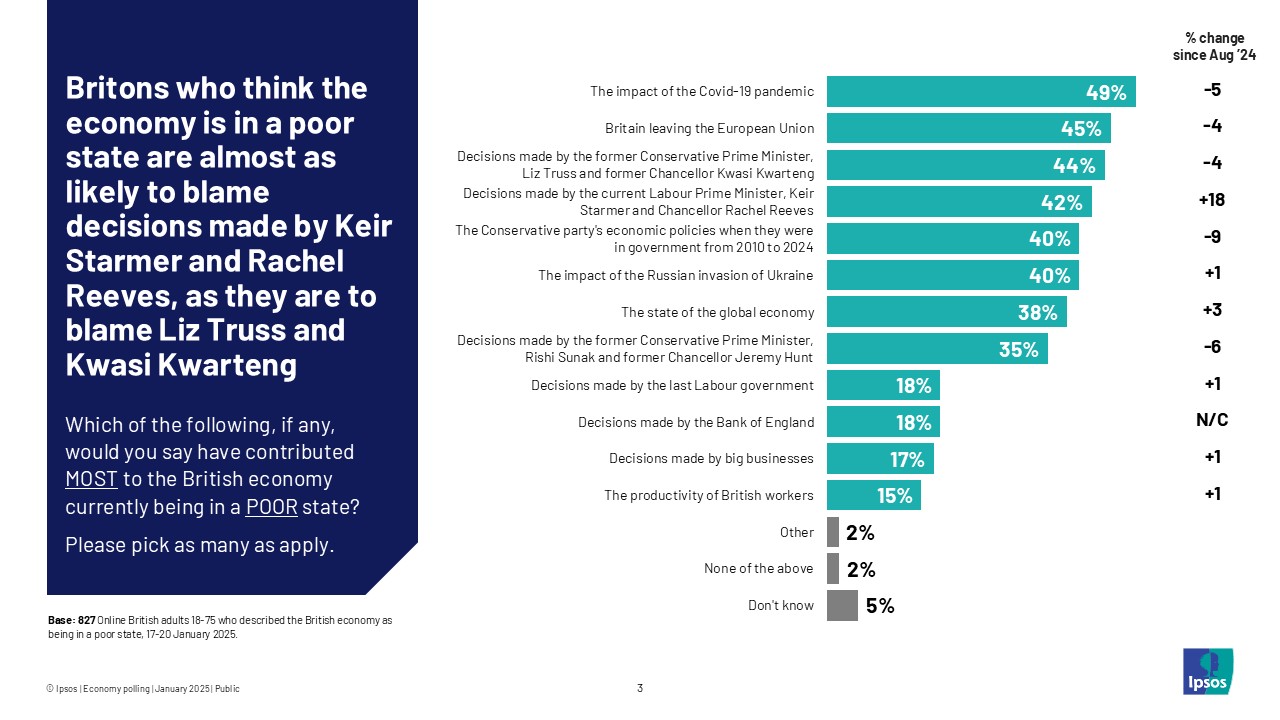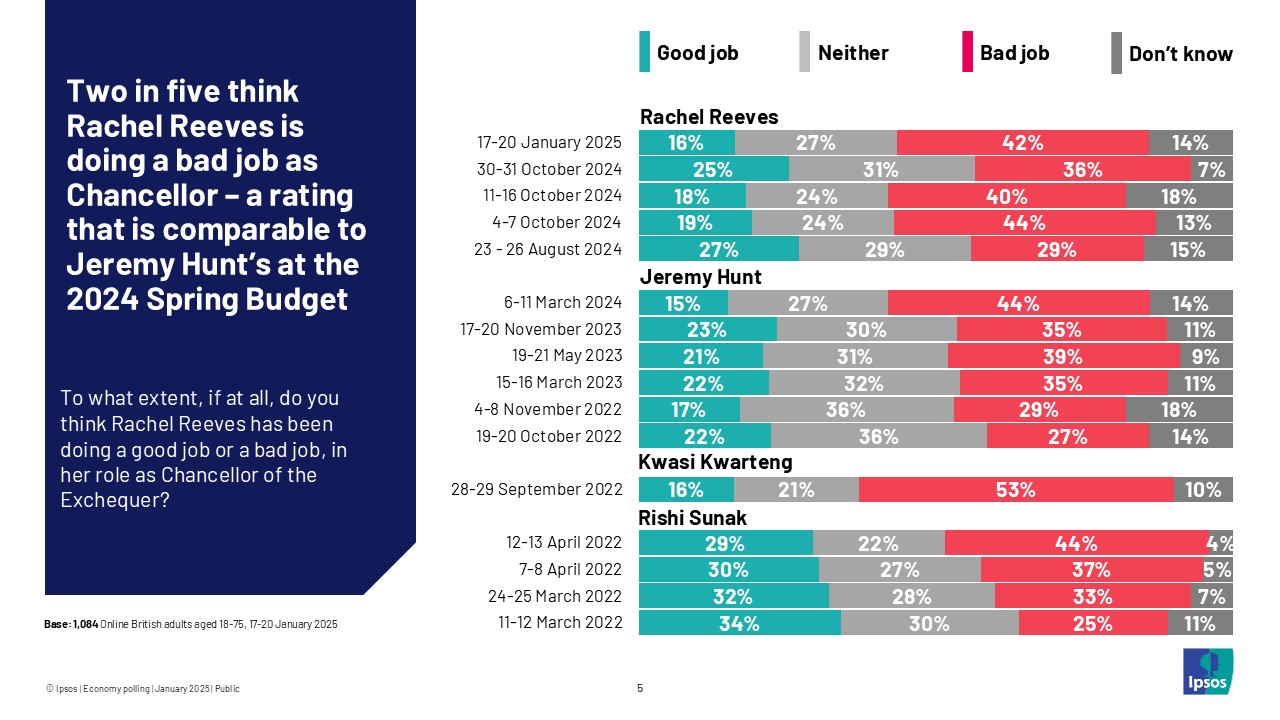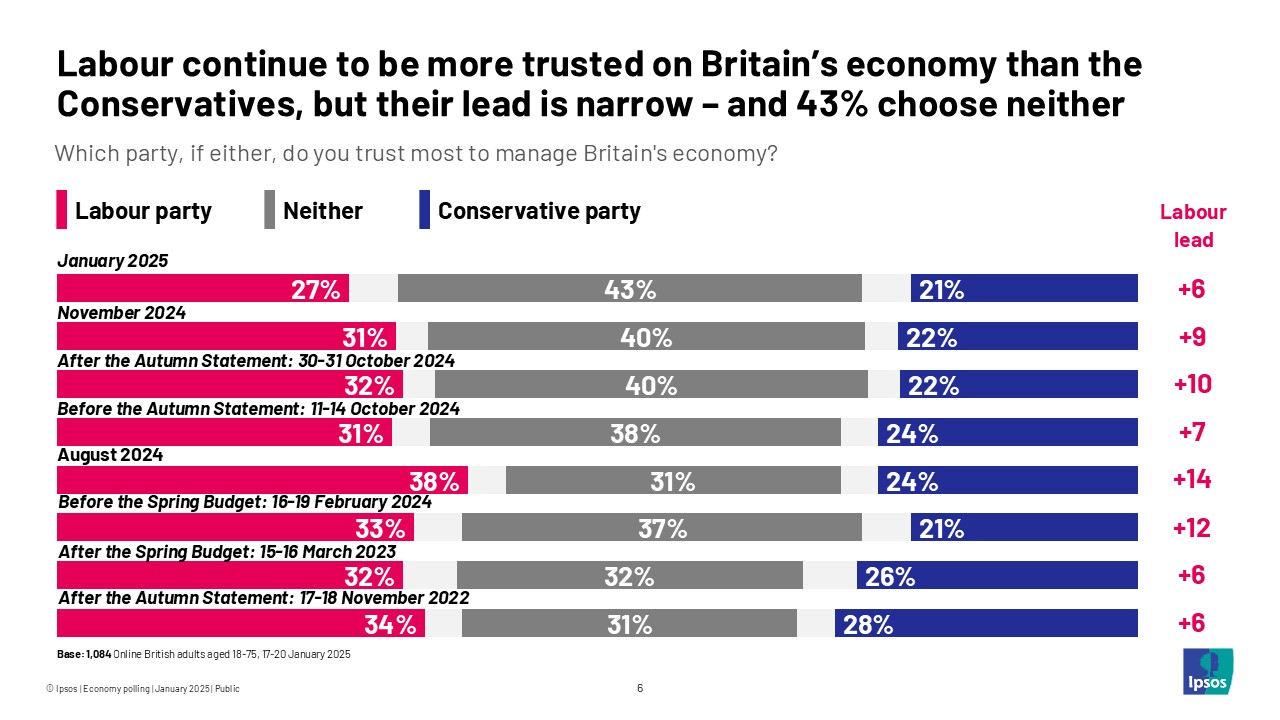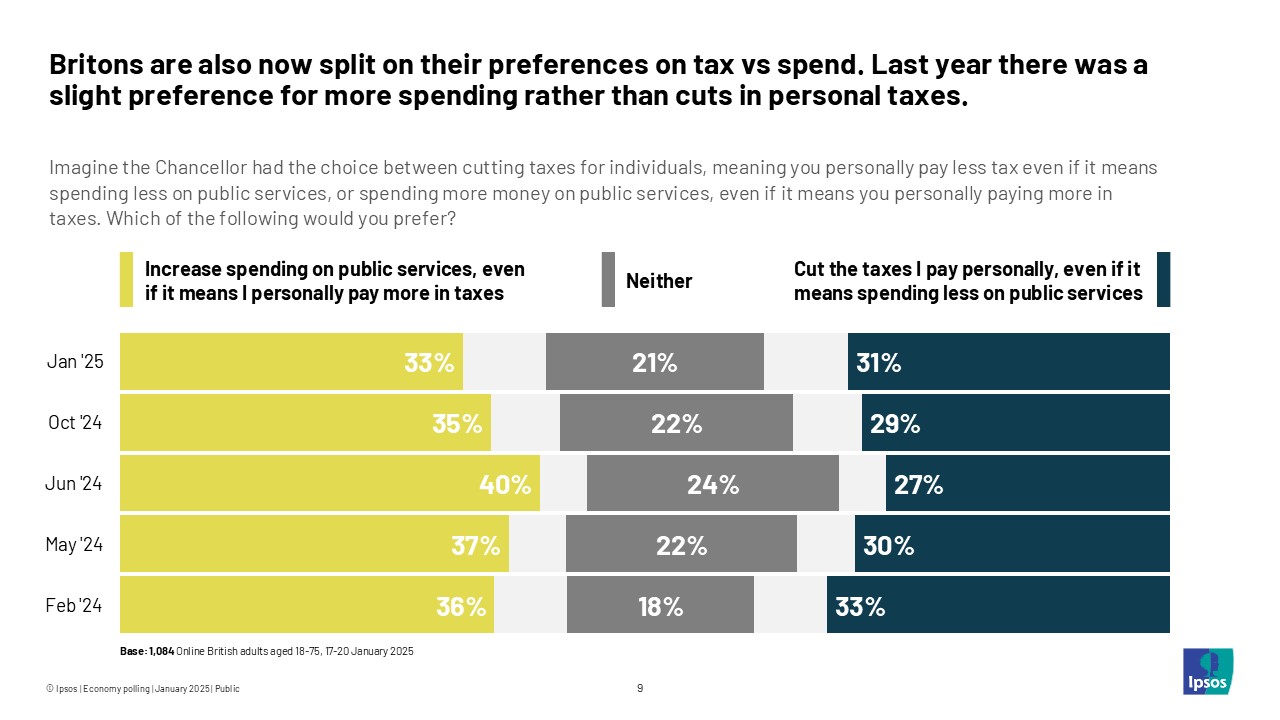Britons increasingly blame Labour for the country's economic woes as 77% say state of the economy is poor
A new Ipsos UK poll reveals widespread public pessimism about the British economy, with 77% of Britons rating the economy as "poor."
- Widespread economic pessimism: 77% of Britons describe the current state of the economy as "poor," compared to just 19% who view it as "good” (net -58). Pessimism has gradually grown since last summer and has now returned to where it was in March 2024 before the election.
- Blame game: Those who view the economy negatively are almost equally as likely to blame decisions made by the current Labour government under Keir Starmer and Rachel Reeves (42%) as they are to blame the previous Conservative government of Liz Truss and Kwasi Kwarteng (44%). There has been an 18 ppt increase in those citing the decisions made by the current Labour government since August 2024. The impact of the Covid-19 pandemic (49%) still receives the most blame, while Brexit (45%), the Conservative party's economic policies overall since 2010 (40%), the war in Ukraine (40%) and the state of the global economy (38%) are also cited as major contributing factors in the country’s economic state.

- Glimmers of hope: On the other hand. among the minority who see the economy positively, decisions made by Keir Starmer and Rachel Reeves are given some of the credit as one of the most mentioned factors (by 23%), along with the state of the global economy (25%), productivity of British workers (23%), and decisions made by the Bank of England (23%).
- Reeves' performance under scrutiny: Two in five (42%) Britons rate Rachel Reeves' performance as Chancellor negatively, a score comparable to Jeremy Hunt's just after the 2024 Spring Budget. 16% think she is doing a good job.

- Labour's narrow economic trust advantage: While Labour continues to be more trusted than the Conservatives on the economy, their lead is just 6 ppt, and the proportion picking them is has dropped slightly since last year. Meanwhile 43% say they trust neither of the main parties.

- Split public priorities: Britons are now split on whether they would prioritise reducing borrowing and cutting the national debt, even if it means reduced spending on public services (32%) or increased borrowing to spend more on public services (30%). This marks a slight shift from October 2024, when increased public spending was marginally favoured (by 35% to 31%). Britons are also split on their priorities between increasing spending on public services, even if it means higher personal taxes (33%), or cutting taxes even if this means less money for public services (31%). This represents a slight change since last year, when there tended to be a small but consistent balance of opinion in favour of more spending. Labour voters and older people tend to be the most supportive of more spending on public services.

Gideon Skinner, Senior Director of UK Politics at Ipsos said:
2025 has started with a focus on the economy, with some news more positive for the Government but other figures less so. The public, though, remain solidly pessimistic about the state of the economy, and in fact are now as worried again as they were a year ago. The economy is central to Labour’s plans for government, but their room for manoeuvre is limited, with the public split down the middle in their preferences for more spending on public services or cuts in taxes and borrowing. Politically attention is also shifting to the impact of the decisions taken by Keir Starmer and the Chancellor Rachel Reeves. While more people overall still blame the Conservatives and other global factors for the poor state of the economy, Labour are now also receiving much more of the flak from the public than they were last summer – the honeymoon is very definitely over.
Technical note:
- Ipsos interviewed a representative sample of 1,084 adults aged 18-75 across Great Britain. Interviews were conducted online between the 17th-20th January 2025.
- Data are weighted to match the profile of the population. All polls are subject to a wide range of potential sources of error.




